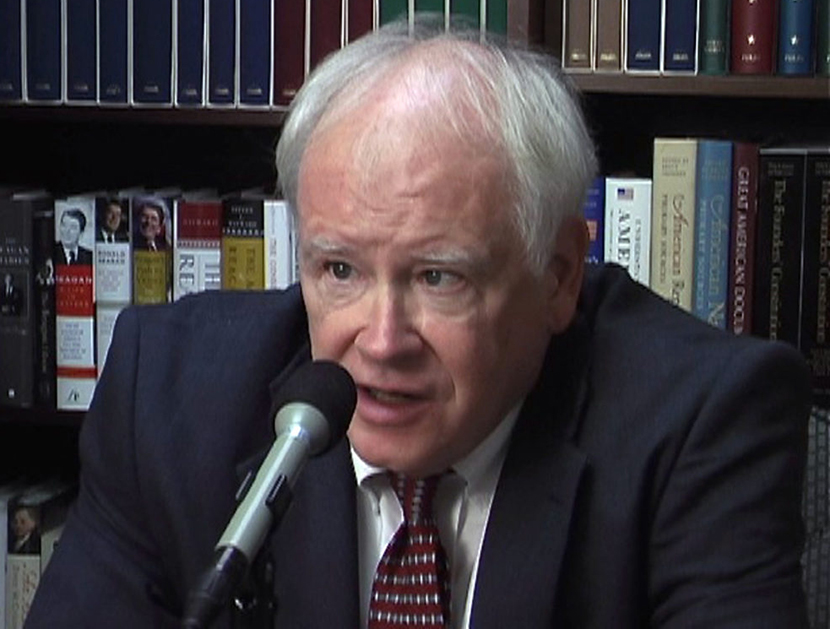Publisher's note: The author of this post is Kari Travis, who is an associate editor for the Carolina Journal, John Hood Publisher.
RALEIGH - The political interests of colleges and universities are adding to a growing list of problems for the schools over the past decade, and the free market will punish them accordingly, experts say.
University cartels grasp for revenue and squelch accountability. The federal government is partly at fault for failing to publish data to help students make informed choices. But university lobbying organizations - using heavy-handed tactics to sway lawmakers - are more to blame, said Richard Vedder, an economist and professor at Ohio University in Athens, Ohio.
High-level discussions of higher education took off in 2005, when U.S. Secretary of Education Margaret Spellings - now president of the University of North Carolina system - assigned 19 experts, including Vedder, to study access, affordability, accountability, quality, and innovation. The group was dubbed the "Spellings Commission."
The commission released a 2006 report, "A Test of Leadership: Charting the Future of U.S. Higher Education.
In September, Spellings hosted a conference at UNC-Chapel Hill to look back at the results. Small steps were taken since the days of the Spellings Commission, but not much has changed, she said.
"We really haven't made as much progress as I think many of us would have hoped," she said Sept. 27.
The former White House adviser is just being modest, Charles Miller, former chairman of the Spellings Commission, told Carolina Journal.
No one was talking about university problems in the early 2000s. During the George W. Bush era, the focus was on K-12, not higher education. Conversation about real issues was a big deal, Miller said. That effort alone made the commission a success.
The group made a few modest reforms, but results were disappointing, Vedder said.

Ohio University economics professor Richard Vedder, a member of the 'Spellings Commission,' said the panel was unable to bring about serious higher education reforms. (CJ file photo)
- "When I told my wife I was going to be on the commission, she said, 'You're wasting your time. It's much ado about nothing.' And she was more right than wrong."
Vedder said the commission didn't take a decisive stance on many issues. Nothing was done about financial aid, he said. There was discussion about accreditation but no real reform.
- "The federal government has totally screwed up higher education, and we didn't even address that."
Access to universities isn't as big a problem as the commission thought, Vedder said. Some students aren't equipped for college, and the market is overwhelmed by jobless undergraduates. The real question is how to provide technical work force training.
The commission's attempts to increase accountability failed.
"We just didn't have much impact because the higher education establishment is entrenched. It was relatively hostile to the commission's recommendations, and [universities] did everything they could to make sure those recommendations didn't happen," Vedder said.
Change will take years, Miller said. A former chair of the University of Texas System's Board of Regents, Miller got plenty of pushback from university administrators and lobbyists.
Several organizations, including the National Association of Independent Colleges and Universities and the American Council on Education, have done all they can to block transparency, Miller said.
Still, the commission raised awareness of the problems. That's the first step in a fight for change, he said.
"The idea that nothing's happened to improve higher education is way out of line, because one of the things we did in the meeting was to point out the problems."
He added:
"I know it was effective because of the heat I took from colleges and universities."
Resolving major policy issues requires more than brainstorming and offering ideas, Miller said.
- "It takes a generation to accomplish things of the magnitude that we need in higher education."
American universities are entering a new era, Miller added. Accreditation is under continuous analysis. College funding is scrutinized.
The federal government should collect data on students, beginning with enrollment in K-12 schools and ending with entrance into the work force, Miller told CJ.
- "That sounds like an invasion of privacy. But one of the [federal government's] roles is to collect data and present it to the public. We do it all the time, on everything."
People need to see what's happening in the system. The Spellings Commission pushed for more federal data collection, but private colleges and universities called the plan an invasion of privacy.
Universities don't want people to see what's going on inside the system, Miller said. It's a system where you
"get all you can, and spend all you get."
In the long run, only transparent, affordable colleges will win, Vedder said.
- "This idea of raising sticker prices is coming to an end, I think. The market won't bear it. People are saying, 'Don't do it.'"
- "When that starts happening, schools are forced to become - against their will - more innovative, nimble, and willing to change."























